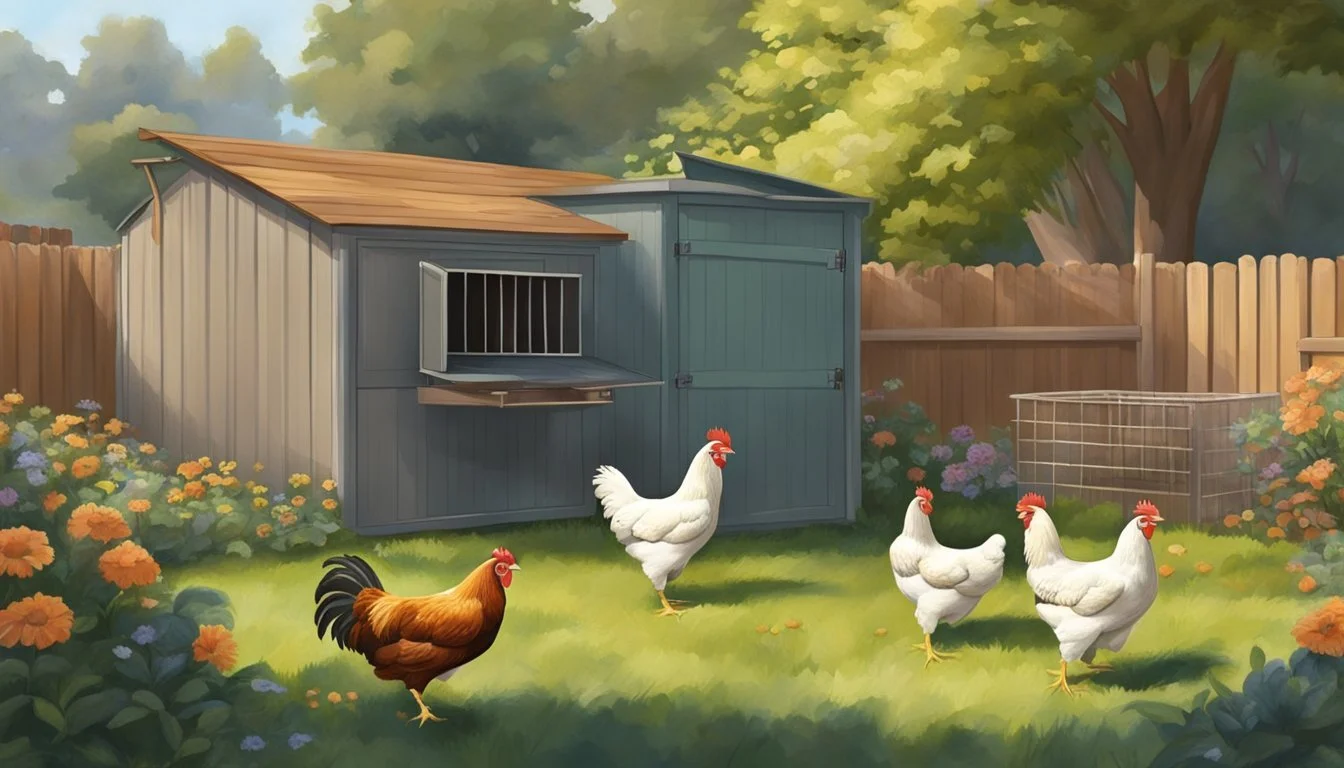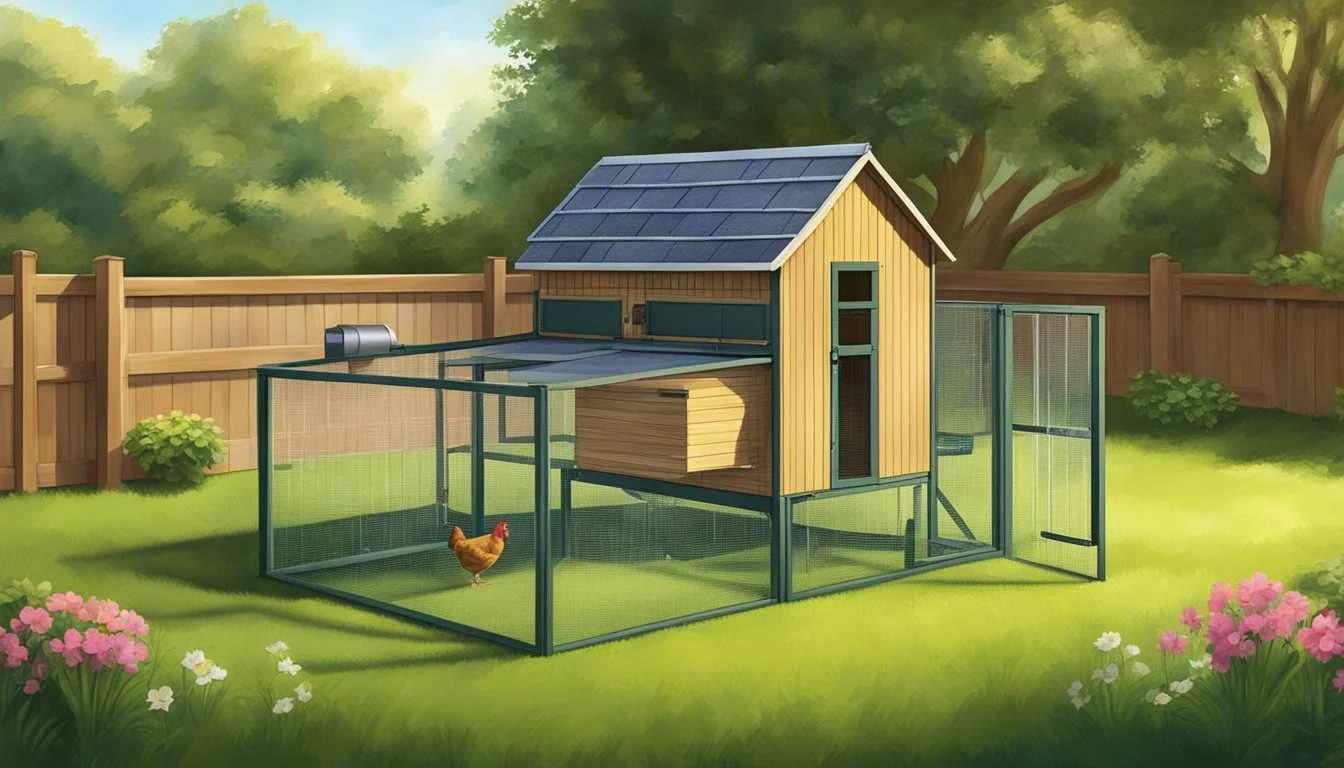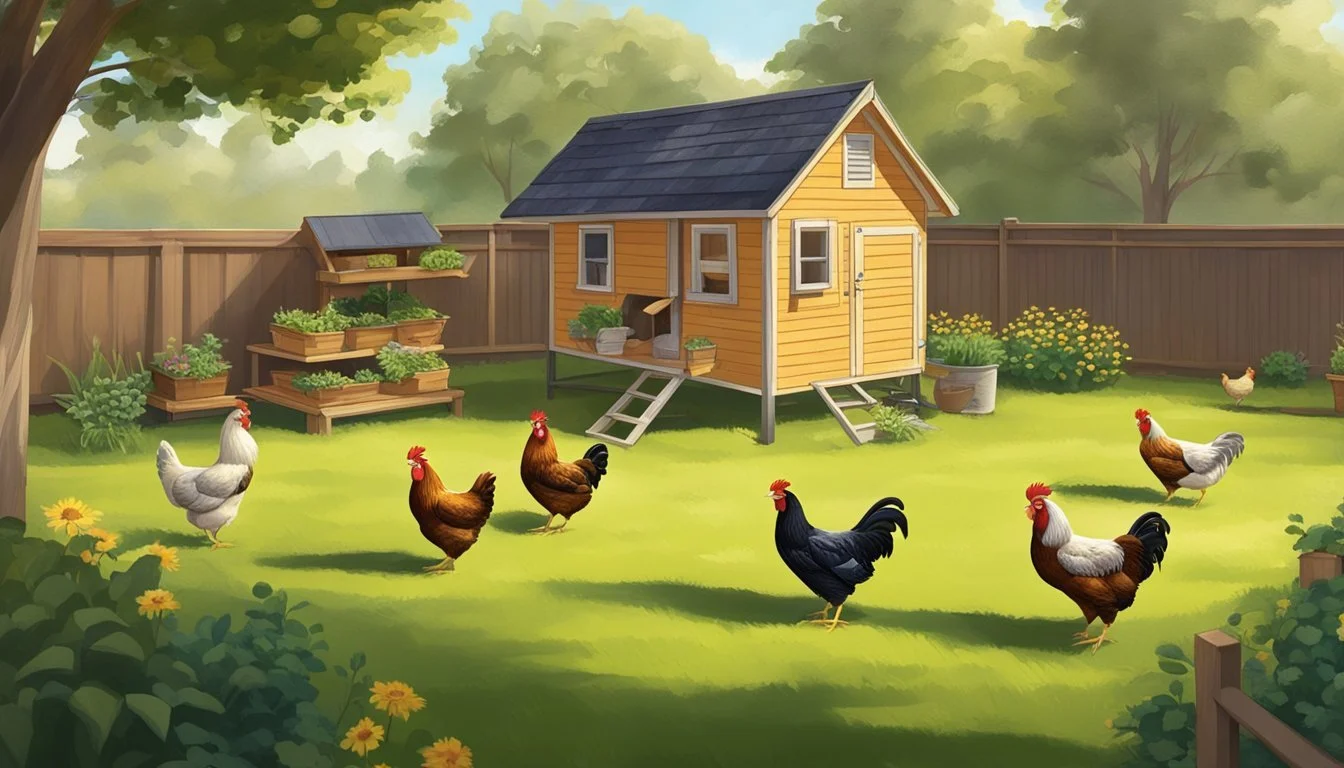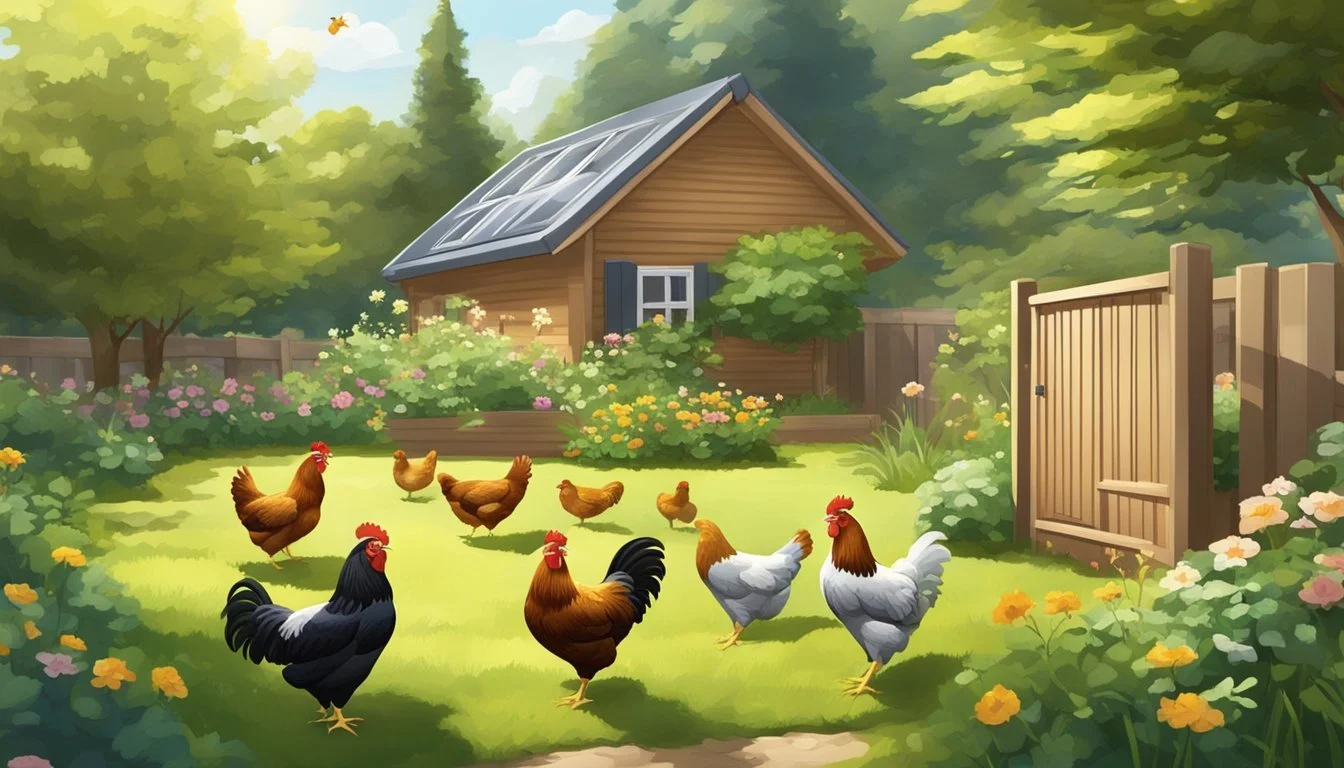Keeping Backyard Chickens in Vacaville, CA
Essential Tips for Local Poultry Enthusiasts
Keeping backyard chickens (how long does chicken last?) has become an increasingly popular trend for residents of Vacaville, California, who are interested in sustainable living, fresh eggs, and the joy of raising poultry. Vacaville's Municipal Code allows for the keeping of chickens as an accessory use in various residential zones, providing that such practice is non-commercial and the lot size meets the required minimum. Zones such as Agricultural, Hillside Agriculture, Rural Residential, Rural Estate, and Residential Low Density accommodate the keeping of chickens, each with specific lot size stipulations, primarily ensuring enough space for such activities.
In Vacaville, the evolving local regulations reflect a growing acceptance and advocacy for backyard chickens. Citizens like Ravinder Rangi have been pushing for ordinances that facilitate the practice within the city limits, emphasizing that the presence of these birds in backyards should be as commonplace and accepted as household pets like dogs. This sentiment is shared by many in the community, highlighting a shift towards more inclusive and diversified urban agriculture practices.
Potential chicken keepers in Vacaville must navigate the city's zoning laws, which dictate the permissible number of chickens based on property size and other specific regulations. Though these rules might vary, they generally ensure the welfare of the chickens, the interests of the community, and adherence to health and safety standards. As interest continues to grow, groups such as the Backyard Hens of Vacaville offer educational resources to residents, promoting responsible and enjoyable backyard chicken keeping.
Understanding Local Chicken Ordinances
Keeping backyard chickens in Vacaville, California, requires adherence to specific local ordinances designed by the city council. Homeowners need to be aware of zoning regulations, permissible chicken numbers, permitting processes, and rooster restrictions to legally maintain their flock.
Vacaville Zoning Regulations
Vacaville Municipal Code stipulates that chicken keeping is permitted as a non-commercial accessory use in certain residential zones. These zones include:
Agricultural (AG)
Hillside Agriculture (AH)
Rural Residential (RR)
Rural Estate (RE)
Residential Low Density (RL-10, RL-8, RL-6)
Properties must have a minimum lot size of 6,000 square feet or larger to qualify.
Number of Chickens Allowed
Local chicken laws are specific about the number of chickens a residence can keep. For lots that meet the minimum size requirement, the city allows:
1 chicken per 1,000 square feet
A maximum of 9 chickens
Vacaville's chicken ordinance ensures that the number of chickens is proportional to property size, preventing overcrowding.
Permitting and Building Requirements
Individuals looking to keep chickens must comply with permitting processes. Although specific details may vary, generally residents will need:
A permit for the construction of chicken coops or enclosures
To follow building permit guidelines ensuring coops meet structural safety standards
Local regulations may demand coop features that protect chickens from predators and maintain aesthetic standards within the community.
Rooster Restrictions
An important aspect of the chicken ordinance in Vacaville are the restrictions on roosters. To minimize noise complaints and maintain neighborhood peace, the keeping of roosters is generally not allowed in the residentially zoned areas mentioned above. Ordinances emphasize that residents can keep chickens, but must be considerate of their neighbors regarding noise and other potential nuisances.
Setting Up Your Chicken Coop
When setting up a chicken coop in Vacaville, CA, residents must consider proper location, structure, and protection to ensure the health and safety of the chickens. A well-designed coop contributes to a clean and functional backyard environment.
Choosing the Right Location
The right location for a chicken coop is vital for the health and comfort of chickens. One should select a spot that:
Offers ample sunlight to deter parasites and keep the coop dry.
Features good drainage to prevent water accumulation.
Maintains a safe distance from living areas to manage noise and smell.
Provides easy access for feeding and cleaning.
Coop Design and Structure
Coop design should cater to the specific needs of chickens, including space, ventilation, and nesting requirements:
Space: At least 4 square feet per chicken within the coop and a similar space in the outdoor run.
Ventilation: Coops require proper ventilation to prevent respiratory issues and ammonia buildup from droppings.
Feature Description Nesting Boxes One box for every 3-4 hens, filled with clean, soft bedding. Roosting Bars Spaced to prevent crowding and positioned for easy waste cleanup. Entrances/Exits Secure doors for chickens and convenient human access for cleaning.
Cleanliness: Regular cleaning is a must to keep coops sanitary. Coop materials should be easy to clean and disinfect.
Protecting Against Predators
Predators are a significant threat to backyard chickens, so it is essential to safeguard them by:
Constructing the coop with sturdy materials that resist chewing or breaking.
Securing the run with heavy-duty wire mesh on all sides and overhead.
Burying the mesh or adding a wire skirt around the coop to prevent digging predators.
Ensuring all doors and openings latch securely to deny any unauthorized access.
Maintaining a Healthy Backyard Flock
A healthy backyard flock in Vacaville, CA, hinges on meticulous feeding practices, continual health monitoring, and rigorous sanitation control. These practices are essential to ensure the wellbeing of chickens and the quality of eggs they produce.
Feeding and Nutrition
Proper nutrition is fundamental for the health of backyard chickens. It's critical to provide a balanced diet that caters to the different stages of a chicken's life cycle. For chicks aging 0-8 weeks, a starter feed of 18-20% protein is optimal. As chickens grow, their dietary needs change to a 16-18% starter/grower feed until they reach 14 weeks of age. From there, a 16% finisher feed will suit them through the pre-lay stage until they reach 18 weeks. A diet rich in nutrients will not only support the chickens' growth but also ensure a steady production of high-quality eggs.
Chick Stage (0-8 weeks): Starter feed crumbles, 18-20% protein
Growing Stage (8-14 weeks): Starter/grower feed, 16-18% protein
Pre-lay Stage (15-18 weeks): Finisher feed, 16% protein
Regular Health Checks
Vigilant observation for signs of illness or distress in chickens is vital. Regular health checks help in identifying and addressing potential health issues early on. One should examine the chickens for any abnormalities in behavior or appearance, such as lethargy, abnormal droppings, or changes in eating habits. Preventive measures like vaccinations and parasite control go a long way in maintaining flock health. It's also advisable to consult with a veterinarian who's experienced in avian medicine for any concerns.
Behavioral Signs: Changes in activity, eating habits
Physical Signs: Abnormal droppings, visible distress
Sanitation and Waste Management
Keeping the chicken coop clean is non-negotiable for disease prevention and control. Sanitation involves the regular removal of waste, leftover feed, and soiled bedding. The coop should be cleaned thoroughly on a weekly basis with disinfectants safe for chickens to combat the spread of disease. Waste and composting should be managed in a way that minimizes odors and the attracting of pests, which can be detrimental to the chickens' health.
Daily: Remove leftover feed and visible waste.
Weekly: Conduct a thorough cleaning of the coop with suitable disinfectants.
Waste Management: Establish a composting system for chicken waste.
Navigating Neighborly Relations
When keeping backyard chickens in Vacaville, residents must consider their neighbors by mitigating noise and maintaining a clean environment to prevent any potential nuisance.
Addressing Noise Concerns
Chickens, particularly roosters, can be a source of noise that may disturb neighbors. Residents should:
Understand local ordinance: Check if roosters are allowed in their zoning area.
Implement noise reduction strategies:
Enclose chickens in a coop to muffle sounds, especially during early morning hours.
Position the coop as far away from neighbors' living spaces as zoning laws permit.
Managing Smells and Aesthetics
The presence of chickens can affect the neighborhood's scent and visual appeal. To manage this, residents should:
Keep coops clean: Regular cleaning prevents the accumulation of waste, reducing odors and attracting fewer pests.
Maintain coop aesthetics: Coops should blend with the local environment and be kept in good repair to address neighbors' concerns over property values.
By applying these measures, Vacaville residents can enjoy the benefits of backyard chickens while fostering positive relations within their community.
Staying Informed on Backyard Chicken Regulations
Vacaville residents interested in keeping backyard chickens must adhere to specific local and state regulations. Staying informed about these regulations ensures compliance and helps avoid potential legal issues.
Keeping Up with Local Resolution Updates
Local ordinances in Vacaville are subject to change, and the city council may pass resolutions modifying current regulations. These updates can affect the number of chickens allowed, space requirements, and permit needs. Residents should regularly check with the community development department or city’s official website for the latest ordinance information. They can also reach out directly to the community development director to confirm current laws.
Participating in Community Meetings
Attending local city council meetings is crucial for residents who want to keep chickens or influence local regulations. Community meetings often cover discussions on animal ownership ordinances and provide a platform for public input. These meetings are typically announced on the city’s website, and participating enables residents to voice their opinions or concerns directly to city staff.
Understanding Statewide Chicken Laws
In addition to local regulations, there are California statewide chicken laws that address the keeping of backyard poultry. Although local city ordinances may have more specific rules, one must also comply with state regulations. For thorough understanding, individuals should consult resources like ChickenLaws.com or California’s Department of Food and Agriculture. Such resources offer comprehensive information on statewide poultry keeping requirements.
By keeping informed through these channels, Vacaville residents can responsibly maintain backyard chickens within legal bounds.
Expanding the Conversation
As the urban agriculture movement grows, cities like Vacaville are looking at the benefits and implications of backyard chicken-keeping. Notably, this shift brings to the forefront discussions on local ordinances, sustainability, and food independence.
Involvement in Urban Agriculture Movements
The urban agriculture movement is gaining momentum across Californian cities such as Los Angeles, San Francisco, Oakland, Sacramento, San Diego, Bakersfield, Long Beach, and San Jose. In these cities, residents are increasingly interested in producing their own food, which contributes to community development and a greater sense of independence within city limits. In Vacaville, proponents of urban agriculture are now advocating for the integration of backyard chickens as part of this broader movement. They point to the potential for reducing carbon footprints and contributing to local ecosystems, aligning with similar initiatives supported in neighboring cities.
Advocating for Responsible Chicken-Keeping
Amidst the push for urban agriculture, Vacaville residents are taking a thoughtful approach to advocate for responsible chicken-keeping. The Community Development Department is a pivotal entity in determining the best practices and regulations that ensure the well-being of both the chickens and the community. Advocates assert that with proper guidelines, raising backyard chickens can be a beneficial addition to Vacaville, mirroring the success of other Californian cities that have embraced this aspect of urban agriculture. These guidelines include considerations on pen size, the number of chickens per household, and measures to prevent potential nuisances or public health concerns.







